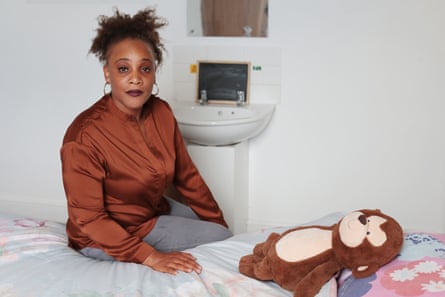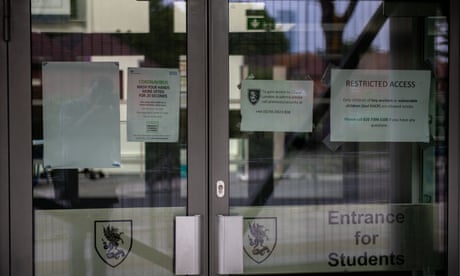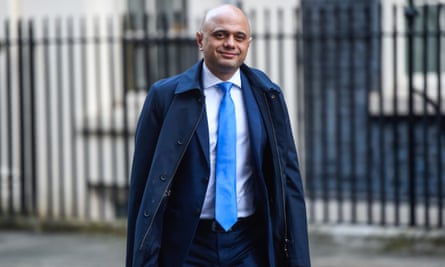“Sharp increase in UK child sexual abuse during pandemic”, The Guardian
Jess Staufenberg, London, Wed 8 Jul 2020
Children’s homes warn of struggle to keep residents safe as more time spent online puts young people at greater risk

Lockdown was supposed to make us all safer and save lives. But for some vulnerable young people the opposite has been true.
Sajid Javid, the former chancellor, warned last month that isolation was creating a “perfect storm” for child sexual abuse. With most pupils not back at school before September, children are spending more time online, putting them at greater risk of being targeted by strangers through social media, apps and gaming. And, although lockdown is easing, children now face the long summer holidays with few adults outside the family to spot if something is going seriously wrong.
At the moment, data on child sexual exploitation and child sexual abuse during lockdown is not yet clear. We know from recent National Crime Agency (NCA) figures that at least 300,000 people in the UK pose a risk of committing physical or online child abuse, more than double the 140,000 reported last year. And NCA figures shared exclusively with the Guardian show that during each of the 13 weeks of lockdown, around 350 cases of online child sexual abuse were passed to police, a 10% increase on the same period last year.

“Our pursuit of high-risk online offenders has been unrelenting during lockdown,” says Charles Yates, the NCA’s deputy director. But these figures could be the tip of the iceberg. “The full scale will only be revealed once children return to schools and have more access to trusted adults, and the tech industry brings back human moderators [who check their platforms for illegal content],” he says.
Even then, it may take some time. Andy Burrows, head of child safety online policy at NSPCC, warns that it may not be until 2021 that we will know the full impact. “What we’re likely to see here is a long tail of disclosures [in autumn].”
Meanwhile, the Internet Watch Foundation (IWF), a charity that reports and removes online child abuse, revealed in May that during lockdown, three major internet companies logged 8.8m hits to child sexual abuse imagery from the UK alone.
Susie Hargreaves, chief executive at the IWF, warns of an “exponential rise in self-generated content, where children on their phones and laptops have clearly been coerced and groomed into sharing graphic sexual images of themselves, without realising these are being recorded and shared”. She adds: “Clearly, the more vulnerable the child is, the more likely they are to be tricked and coerced.”
Perhaps nowhere are vulnerable children more likely to be found in greater numbers than in England and Wales’s 2,360 children homes.
One west London home for girls at risk of sexual exploitation has been pioneering a system to keep its residents safe – although it has found it harder to enforce amid lockdown, particularly as new guidance around “staying alert” has blurred the rules.
On arrival at the home, which is run by the charity St Christopher’s Fellowship, the girls’ phones are removed and they are then returned as a reward for safe behaviour. They also get a fob key to leave the house, which – crucially – can be deactivated by staff.

If staff are worried about a girl’s behaviour, that it might make her unsafe outside, then the fob is deactivated – for anything from 10 minutes to up to three days.
“It’s about being attentive to their patterns,” explains Laverne Cole, regional manager at St Christopher’s. “They might be unsettled or perhaps they’re still dressed when everyone else is in pyjamas. Their mood dips or they become excitable. We say, ‘We’re worried about your safety, let’s do something inside today’.”
According to Cole, the system, which in 2015 won funding under the Department for Education’s Social Care Innovation Programme, has resulted in far fewer girls going missing, and the DfE’s evaluation of the project notes “a decline in incidents involving actual or potential harm to self or others over the course of the intervention”.
But this model, which rewards good behaviour indoors with the freedom to go outside, has been fundamentally undermined by lockdown. Some girls thought lockdown was imposed by the home, rather than the government, Cole explains.
“We had one young person who found that really hard and went to great lengths to contact the police about her human rights.” The police, she says, helped to “reinforce the message that this isn’t coming from us and we’re not doing anything unlawful”.
The incident shows how children’s homes, which already strike a delicate balance around their residents’ liberty, faced losing young people’s trust when trying to enforce lockdown. It’s a balance set to become even more complicated, as experts warn of a “summer of rave” and parties amid the government’s lack of clarity about when socially starved young people can meet up.
Cole says her home’s approach imposes a restriction of liberty, in line with the Children’s Homes Regulations guide. These state that “there may be circumstances where a child can be prevented from leaving a home […] to meet someone who is sexually exploiting them”. In contrast, a deprivation of liberty is against the law without a special court order.
But not all children’s homes were able to keep residents safe inside during the height of the pandemic. At a privately run care home in East Anglia, staff could not prevent a 13- and a 14-year-old girl from being abducted by men in their 20s who had contacted the girls through social media. “Often the girls don’t perceive it as harm,’ says John Anderson, the owner of the children’s home. “The abusers can be seductive and so in a child’s mind it becomes very confusing.”
During lockdown, a taxi appeared outside the home and the girls got in. Anderson immediately confronted the driver. “I asked him not to take them as, legally, it was child abduction, but he didn’t listen. We rang the police and photographed the taxi driver, then followed him.”
The police eventually rescued the girls and arrested the men. The situation sounds chillingly familiar: the 2014 independent inquiry into Rotherham child abuse from 1997 to 2013 noted taxi drivers were a “common thread” across cases.

Ex-chancellor Sajid Javid, who has launched an inquiry into child sexual abuse and exploitation. Photograph: Peter Summers/Getty Images
A pressing issue is the lack of secure placements, says Anderson. With only 15 secure homes in the country but demand for them rising, open residential homes like his are increasingly being asked to take in young people who need higher staff ratios and more restrictive measures. It’s another pressure on the system that’s been exacerbated by coronavirus, but which will not go away as lockdown begins to ease. Anderson eventually found the highest-risk girl a secure solo placement with a three-to-one staff ratio.
Javid has now launched an inquiry into child sex abuse and exploitation with the Centre for Social Justice (CSJ). The first part on organised child sexual exploitation, including gangs and on-street grooming, is expected to be published in the autumn.
Speaking on the phone, he says he is particularly concerned that – as happened in East Anglia – dangerous taxi drivers are still arriving outside children’s homes. It’s “terrible”, he says, adding “there is a case to look at powers for child protection and the police, so that they are able to do more to protect young people when we know they are in harm’s way”.
Javid also believes technology could be used more effectively. “Why is it not the case that [taxi drivers’] movements … are constantly monitored on GPS? So if you drive near a children’s home, that information would be available to law enforcement and others and act as a deterrent.”
In the meantime, children’s home managers would like some recognition that they have been working flat out to keep vulnerable young people safe.
Carol Smith, residential manager of a therapeutic children’s home in north Wales, says “there’s still a stigma” around children’s homes and many staff have felt unrecognised. “There’s been a lot of clapping for nursing homes but I do feel like children’s homes have been sadly missed. We live here, we sleep here. We care about these children like they’re our own children.”
Some names have been changed
- “Brooks and Capehart on Trump forcing allies to reevaluate ties with U.S.”, PBS NewsHour
- Issue of the Week: Human Rights, Economic Opportunity, War, Hunger, Disease
- “Iran signals fast trials and executions for protesters as death toll in crackdown goes over 2,500”, Associated Press
- “Joe Rogan breaks with Trump over ‘Gestapo’ ICE operations”, The Hill
- “The Notorius M.T.G.”, The New Yorker
- January 2026
- December 2025
- November 2025
- October 2025
- September 2025
- August 2025
- July 2025
- June 2025
- May 2025
- April 2025
- March 2025
- February 2025
- January 2025
- December 2024
- November 2024
- October 2024
- September 2024
- August 2024
- July 2024
- June 2024
- May 2024
- April 2024
- March 2024
- February 2024
- January 2024
- December 2023
- November 2023
- October 2023
- September 2023
- August 2023
- July 2023
- June 2023
- May 2023
- April 2023
- March 2023
- February 2023
- January 2023
- December 2022
- November 2022
- October 2022
- September 2022
- August 2022
- July 2022
- June 2022
- May 2022
- April 2022
- March 2022
- February 2022
- January 2022
- December 2021
- November 2021
- October 2021
- September 2021
- August 2021
- July 2021
- June 2021
- May 2021
- April 2021
- March 2021
- February 2021
- January 2021
- December 2020
- November 2020
- October 2020
- September 2020
- August 2020
- July 2020
- June 2020
- May 2020
- April 2020
- March 2020
- February 2020
- January 2020
- December 2019
- November 2019
- October 2019
- September 2019
- August 2019
- July 2019
- June 2019
- May 2019
- April 2019
- March 2019
- February 2019
- January 2019
- December 2018
- November 2018
- October 2018
- September 2018
- August 2018
- July 2018
- June 2018
- May 2018
- April 2018
- March 2018
- February 2018
- January 2018
- December 2017
- November 2017
- October 2017
- September 2017
- August 2017
- July 2017
- June 2017
- May 2017
- April 2017